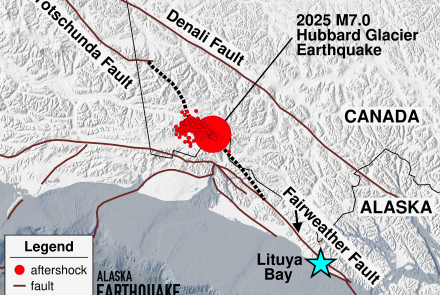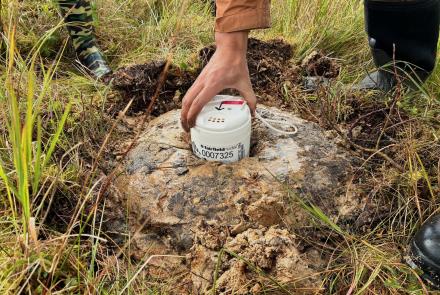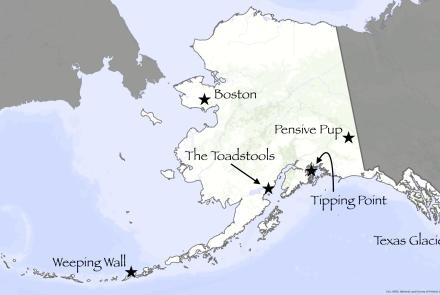The Electrical Season
Anybody who's lived through a winter in the colder parts of Alaska knows that at this time of year, you can expect frequent electrical shocks. Showers of sparks occur if you walk across a nylon rug and then touch something metal, remove a nylon jacket worn over a polyester sweater, or pet the family cat. As Larry Gedney pointed out a year or two ago in this column, this happens because winter air is dry, dry air is a poor conductor, and poorly conducting air can't conduct an electrical charge away from you as fast as you build it up. Thus you can build up enough of a positive or negative charge that when you finally reach for something that can bleed it off, the result is an impressive Zap!
But why does humid air conduct electricity better than dry air?
In a gas or liquid, electrical current (the flow of charges) is carried by ions -- particles that have somehow obtained more of one kind of charge than the other. In air, ions are formed when a molecule with equal numbers of the two kinds of charge is struck and broken apart by ionizing radiation. Ionizing radiation consists of very fast moving particles and very short wave electromagnetic radiation such as X rays and short ultraviolet. Most ions near the earth's surface are formed by ionizing radiation given off by radioactive elements which occur naturally in the earth's crust and in the air overlying it, and by cosmic rays.
Ions, however, do not remain as "bare" ions for very long. A few lucky ones may get together immediately with an ion of the opposite sign, but most will attach themselves to a group of neutral molecules. In the atmosphere, two types of neutral groups of molecules are usually available: clusters of 4 to 8 water molecules and aerosol (dust) particles. The charged water clusters move very freely through the atmosphere, so they are good at conducting electricity. The charged aerosol particles are large and much more sluggish in their movements, so they do a very poor job of moving the electrical charges attached to them. The higher the number of ions that attach themselves to water clusters, the better the air will conduct electricity.
Whether a bare ion attaches itself to a water cluster or an aerosol particle will depend on which one it runs into first. If there are many water clusters and not many aerosols, which would be the case if the air is clean and the humidity is high, most ions will attach to water clusters, and the air will conduct electricity fairly well. If the air is dry, there won't be so many water clusters, and a smaller number of ions will manage to find them. If in addition there are a lot of aerosol particles competing for the ions produced, very few ions will attach to the mobile water clusters, and atmospheric conductivity can become very low. Volcanic eruptions and dusty operations such as grain storage can produce static discharges because of this even if the humidity is high.
So what can you do about being zapped? Keeping the humidity high can cause problems with insulation, walls and windows, so about all you can do to affect the conductivity of the air is to keep the aerosol content down as much as you can. Have some kind of a static discharge mat or plate you touch before you touch your computer, and touch metal objects with a key or other metal object rather than your hand. That way the key gets the jolt, rather than you.




